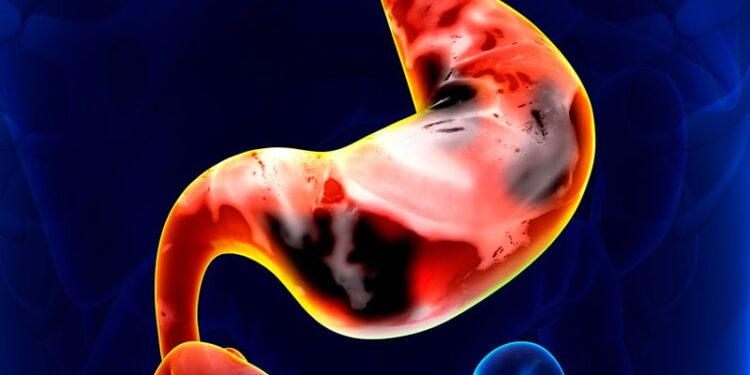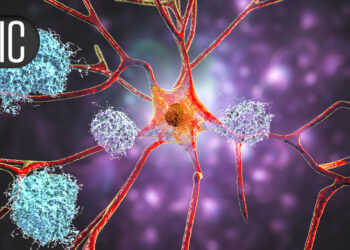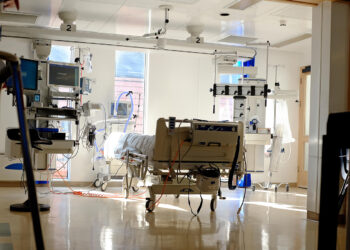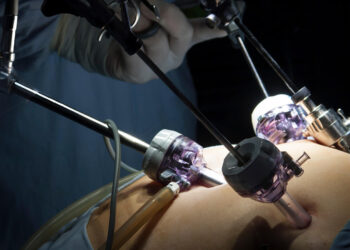TOPLINE
In patients with advanced Claudin-18 isoform 2 (CLDN18.2) -positive gastric or gastroesophageal junction cancers, satricabtagene autoleucel (satri-cel) chimeric antigen receptor (CAR) T-cell therapy significantly extended progression-free survival (PFS) compared with treatment of physician’s choice (TPC).
METHODOLOGY
- CLDN18.2, a tight-junction protein, is overexpressed in patients with gastric and gastroesophageal junction (GEJ) cancers. Satri-cel, an autologous CLDN18.2-specific CAR T-cell therapy, showed promise in previously treated patients with advanced disease, but further validation is needed.
- The new phase 2 randomized controlled trial involved 156 patients with pathologically confirmed CLDN18.2-positive advanced gastric or GEJ cancer who were refractory to two or more previous lines of treatment. The study was conducted in multiple centers in China, and the median age of participants was 52 years.
- Participants were randomly assigned in a 2:1 ratio to receive either satri-cel (IV infusion, up to three times at 250 × 106 cells; n = 104) or TPC (n = 52) that included nivolumab, paclitaxel, docetaxel, irinotecan, or rivoceranib.
- In the satri-cel group, 85% of patients received at least one infusion of satri-cel, 31% received a second infusion, and 6% received a third infusion. In the TPC group, 92% of patients received at least one dose of their treatment.
- The primary endpoint was PFS assessed by a blinded independent review committee. The key secondary endpoint was overall survival (OS). The median follow-up time for PFS was 9.07 months in the satri-cel group and 3.45 months in the TPC group. The median follow-up time for OS was 14.42 months and 11.33 months in the satri-cel and TPC groups, respectively.
TAKEAWAY
- In the intention-to-treat population, the median PFS was 3.25 months in the satri-cel group and 1.77 months in the TPC group. Satri-cel reduced the risk for progression or death by 63% (hazard ratio [HR], 0.37; P < .0001). Median OS showed improvement with satri-cel vs TPC (7.92 vs 5.49 months), although it did not reach statistical significance (HR, 0.69; P = .0416).
- The objective response rate was notably higher in the satri-cel group than in the TPC group (22% vs 4%), with disease control rates of 63% and 25%, respectively.
- The median duration of response was 5.52 months in the satri-cel group. Only two patients in the TPC group showed a partial response, with durations of 4.47 months and 5.42 months, respectively. The median duration of disease control was 3.61 months and 4.27 months in the satri-cel and TPC groups, respectively.
- All patients in the satri-cel group experienced treatment-emergent adverse events compared with 92% in the TPC group. Grade 3 or higher adverse events occurred in 99% of patients in the satri-cel group and 63% of those in the TPC group; the most common ones were decreased lymphocyte count (99%), decreased white blood cell count (98%), and cytokine release syndrome (95%).
IN PRACTICE
In this randomized, phase 2 study, “satri-cel was associated with a statistically significant increase in progression-free survival and clinically meaningful increase in overall survival compared with TPC, along with a manageable safety profile in patients with previously treated, advanced, CLDN18.2-positive gastric or gastroesophageal junction cancer,” the authors write.
SOURCE
The study, led by Changsong Qi, MD, Beijing Key Laboratory of Cell & Gene Therapy for Solid Tumour, State Key Laboratory of Holistic Integrative Management of Gastrointestinal Cancers, Department of Early Drug Development Centre, Peking University Cancer Hospital & Institute in Beijing, China, was published online May 31 in The Lancet.
LIMITATIONS
The sample size — powered for PFS — might be insufficient to yield definitive conclusions from the subgroup analyses. Some patients in the satri-cel group could not receive CAR T-cell infusion after apheresis, making them ineligible for treatment. The time between apheresis and CAR T-cell infusion remains a significant limiting factor, particularly in the case of those experiencing rapid disease progression.
DISCLOSURES
The study was funded by CARsgen Therapeutics, the National Key Research and Development Program of China, the National Natural Science Foundation of China, Beijing Hospitals Authority Youth Programme, Science Foundation of Peking University Cancer Hospital, Clinical Medicine Plus X—Young Scholars Project of Peking University, and the Peking University Clinical Scientist Training Program. Five authors declared being employees of CARsgen Therapeutics. The other authors declared no competing interests.
This article was created using several editorial tools, including AI, as part of the process. Human editors reviewed this content before publication.
Source link : https://www.medscape.com/viewarticle/car-t-cell-therapy-boosts-pfs-advanced-gastric-cancer-2025a1000eqm?src=rss
Author :
Publish date : 2025-05-31 20:56:00
Copyright for syndicated content belongs to the linked Source.














